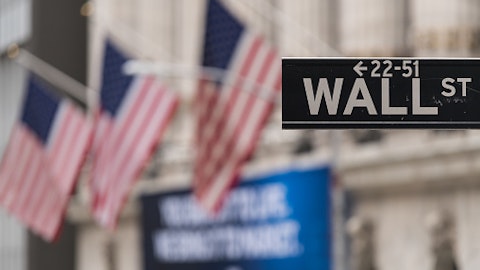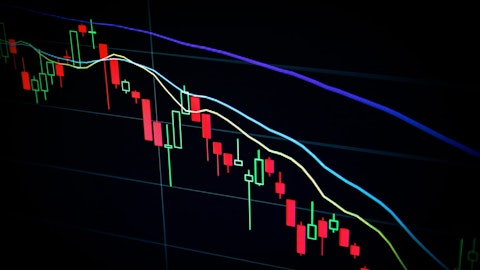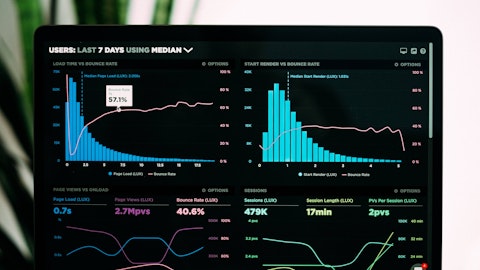4. Zions Bancorporation, National Association (NASDAQ:ZION)
Year-to-Date Share Price Decline: 40.92%
Number of Hedge Fund Holders: 33
Zions Bancorporation, National Association (NASDAQ:ZION) provides corporate banking, commercial banking, commercial real estate banking services, municipal and public finance services, retail banking, trust services, wealth management, and private client banking services. Zions Bancorporation, National Association (NASDAQ:ZION) ranks 4th on our list of the worst performing S&P 500 stocks based on share price performance year-to-date.
On June 15, analyst Timothy Coffey from investment advisory Janney downgraded Zions Bancorporation, National Association (NASDAQ:ZION) to Neutral from Buy after the bank reduced its net interest margin guidance, citing higher deposit costs.
According to Insider Monkey’s first quarter database, 33 hedge funds were bullish on Zions Bancorporation, National Association (NASDAQ:ZION), compared to 38 funds in the preceding quarter. Louis Bacon’s Moore Global Investments is a prominent stakeholder of the company, with 961,246 shares worth $28.7 million.
FMI made the following comment about Zions Bancorporation, National Association (NASDAQ:ZION) in its Q1 2023 investor letter:
“Our two most impacted holdings during this recent crisis were Zions Bancorporation, National Association (NASDAQ:ZION) and discount broker Charles Schwab. We believe both have sticky deposit bases, best-in-class management teams, conservative balance sheets, and attractive valuations. In both cases, outside of absolute contagion/panic resulting in a run on their deposits (a very low probability tail risk), we view the impact on the businesses as more of an “earnings” event, not a “balance sheet” event. Zions and Schwab got caught up in the contagious fear around SVB’s collapse due to some optical similarities between their balance sheets (namely bonds carried at mark-to-market losses), and Zions being a West Coast regional bank. We believe the similarities largely end there. Zions has a much more diverse deposit base than SVB. We estimate that half of Zions’ deposit base are small and medium-sized business operating deposits, which have historically been quite stable and a competitive advantage. Nearly half of Zions’ deposits are FDIC-insured, and the bank has ample liquidity to meet outflows without selling its securities portfolio. Similarly, Schwab’s retail deposit base is very sticky. Over 80% of their customers’ cash is FDIC-insured, and the cash is spread across approximately 34 million brokerage accounts (average ~$10,000 in bank cash per account). Schwab has more balance sheet liquidity than deposits. In both cases, there appears to be a low risk of correlation among their respective client bases. Although there will likely be some profit headwinds that stem from this crisis, we viewed the large declines in these shares as overly punitive, and thus believe the risk/reward for each is increasingly attractive. We have added to both positions.”
Follow Zions Bancorporation National Association (NASDAQ:ZION)
Follow Zions Bancorporation National Association (NASDAQ:ZION)
Receive real-time insider trading and news alerts





